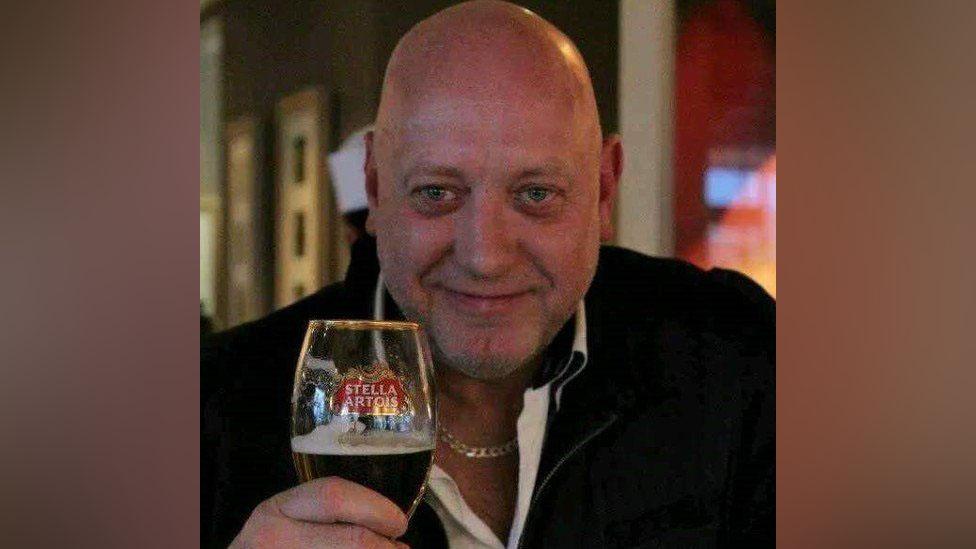Sister forgives mentally ill brother Adam Merritt for killing their dad
- Published
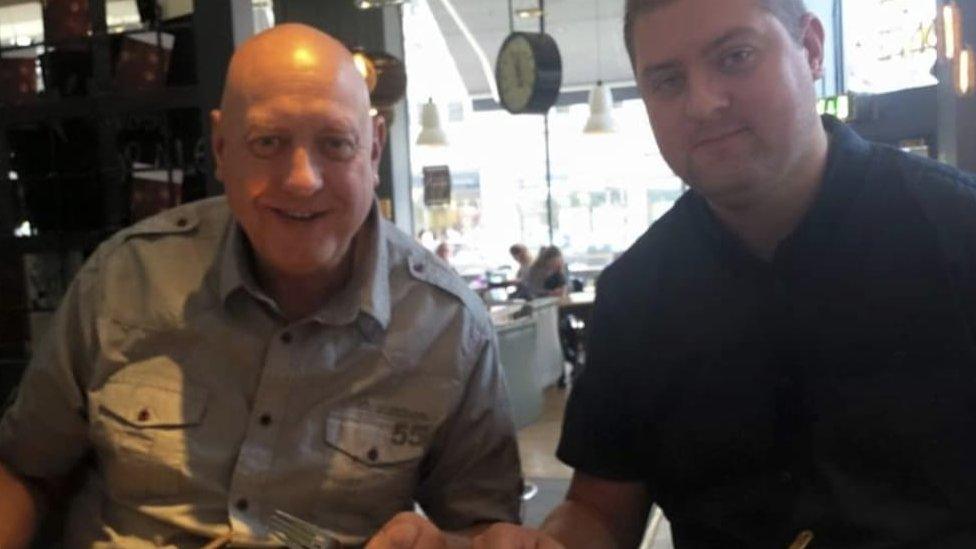
Rob Merritt (left) had cared for his son Adam since he was diagnosed with schizophrenia in his late teens
Adam Merritt had a very close bond with his father Rob, who was also his carer after he was diagnosed with schizophrenia as a teenager. But in June last year, Adam called 999 to confess he had killed him. Adam's sister says she is trying to move forward but will always wonder whether more could have been done to help them.
Sarah Merritt spoke to her father every day and remembers sending him a picture of family time at a pool, to which he replied, simply, "cool".
It would be the last message he would send to his daughter.
Sarah received a knock on the door the following morning, delivering the news which was "obviously the worst thing I've ever heard in my life".
Her brother Adam had stabbed their father 16 times at the home the pair shared in Peterborough.
"He cared for him from day one, since he was born and he never stopped caring," Sarah says about her father's relationship with Adam.
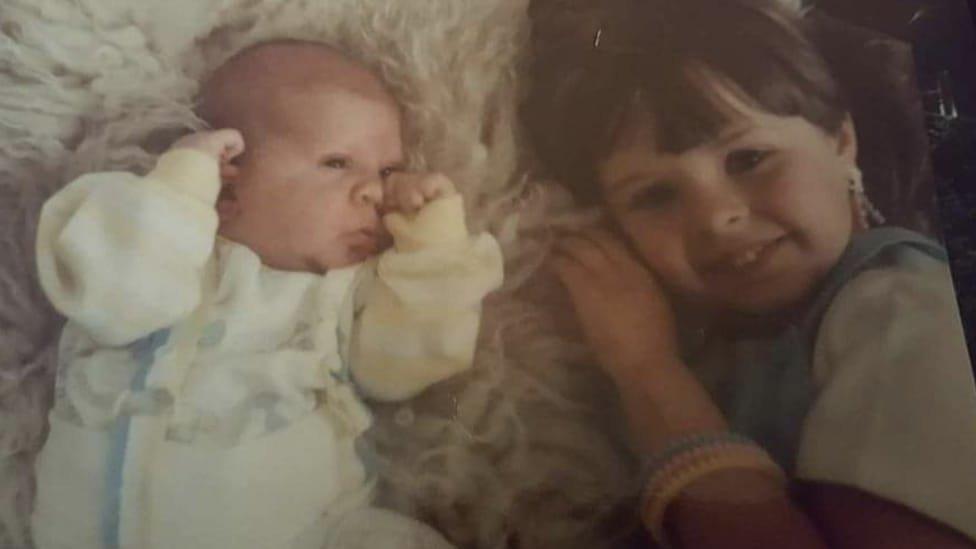
Sarah, pictured with Adam as a baby, remains close to her brother
Adam was in his late teens when he started to show signs of mental health problems and he was diagnosed with schizophrenia in 2008.
He was sectioned around that time but managed to break out of the hospital more than once, leaving his family fearful of the future.
"That's when my dad thought 'OK, I'm going to do this on my own and take him in and look after him myself', and then at least he can be there with him and take care of him," says Sarah.
While the pair had a close bond, Sarah says her father was given no training, despite having never dealt with this sort of situation before.
"He felt like he understood and could do it, but I think there were ups and downs with Adam over the years when he did have a turn.
"It ended up making my dad ill as well, to the point where he ended up suffering and having to go to the doctors with depression and anxiety trying to deal with it."
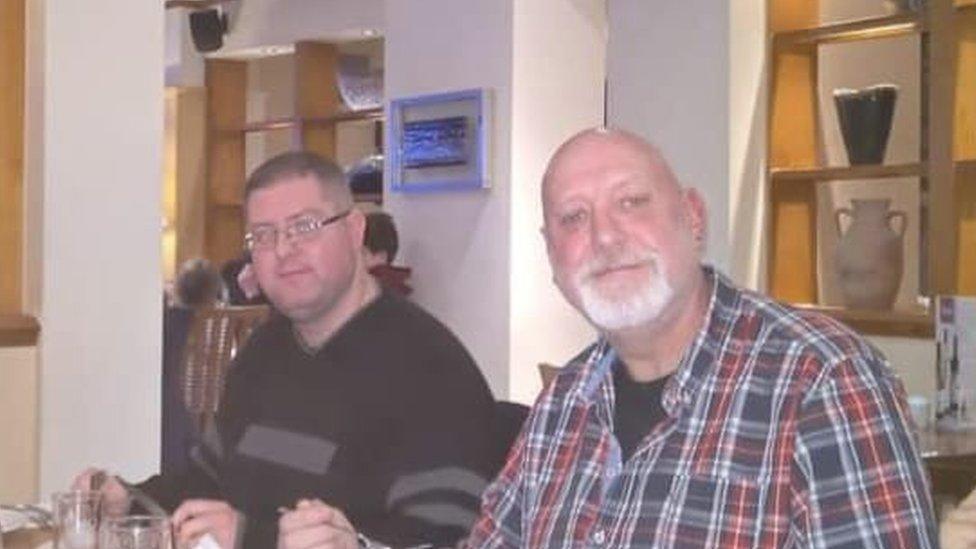
Adam and Rob had a close bond, says Sarah
He "would never give up" on his son, Sarah says.
Adam was known to the local NHS mental health trust, Cambridgeshire and Peterborough NHS Foundation Trust (CPFT), but not to adult social services.
However, social services knew Rob was an unpaid carer, receiving an annually-reviewed carers' direct payment.

If you are affected by any of the issues in this article you can find details of organisations that can help via the BBC Action Line.

Sarah was concerned about how well Adam was being monitored in the community.
She feels her brother was "let down" because he was "not being seen by any professionals, not [having] regular visits or checks on him and how he was doing in his mind or taking medication".
As a result, Sarah believes her father's death could have been prevented.
"If Adam had the help from professionals, maybe he could have spoken to them, if he knew in his mind what he potentially could do, maybe then they could have helped him," she says.
Adam was originally charged with murder but was deemed unfit to stand trial.
That led to a trial of facts - used to determine whether or not someone committed an act and not whether someone is guilty - in April, after which he was given a hospital order.
The jury heard Adam had stopped taking his anti-psychotic medication two weeks earlier, but had taken a dose of medicine the day before the killing.
Adam and Rob were planning a move to Cumbria at the time. Sarah's partner James Knight believes the imminent move was stressful for Adam.
"I think maybe deep down it must have just brought on some anxieties for Adam and because there was no help from the NHS in that moment, which he had not had much help beforehand throughout the years, I believe that all of that contributed to the outcome.
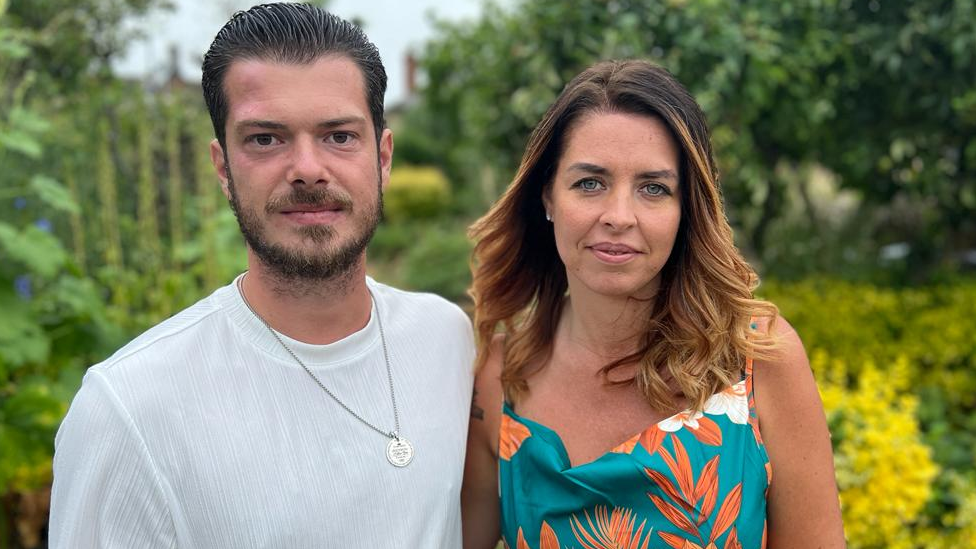
Sarah and her partner James want to raise awareness of mental health
"I feel like it's out of sight, out of mind. I feel like because this happened he's now getting the help he should have had years ago."
Sarah remains close to her brother, and does not blame him for what happened. "I'm not against him whatsoever. I'm not angry at him. I just feel really sorry for him," she says.
Asked if she forgives Adam, Sarah immediately responds: "I do, yes."
She believes her brother would never have meant to hurt their father "if he was in his right mind".
"He didn't mean to do it and I'm sure he would say the same thing, that he has a lot of regret," she adds.
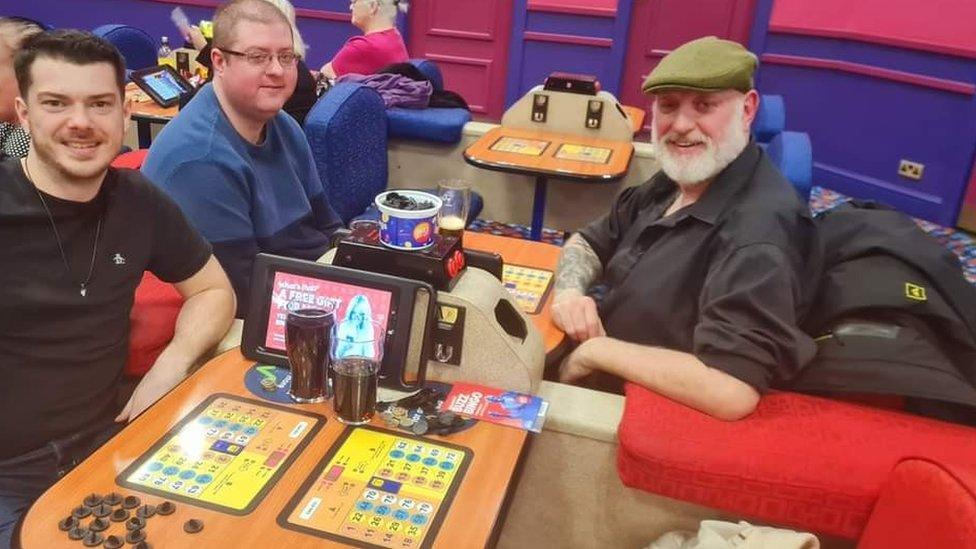
A domestic homicide review has been commissioned in order to learn lessons
Julian Hendy, from the mental health homicide charity Hundred Families, says there are 100 to 120 homicides by people with serious mental illness in the UK every year, with the majority of these happening within families.
"I've dealt with lots of families in this situation and often forgiveness of the person who's done it is there," he says.
"I think often the feeling we get from a lot of families is 'why has it taken a tragedy to get people the care and treatment they needed?'".
A small minority of people who have serious mental health problems are dangerous to others when unwell, he adds, and "often there's a failure to safeguard" them.
Both CPFT and the local integrated care system - a partnership of organisations aiming to provide joined up health and care services - said they were unable to comment on individual cases.
The Safer Peterborough Partnership said the case would be subject to a domestic homicide review, designed to see if lessons can be learned."This could not proceed prior to sentencing but is now under way and the independent chair will be in touch with family members to participate in this review as the contribution from family and friends is valuable to the process," the statement added.
Sarah hopes that by speaking out it will send a message to the authorities about how people with mental health issues are treated.
She talks to her brother regularly, but rather than speak about what happened, conversations focus on the every day, often about his hobbies which include painting and going to the gym.
"I try to keep it as normal as I can for his health and his sake. We are just trying to move forward," she says.

Follow East of England news on Facebook, external, Instagram, external and Twitter, external. Got a story? Email eastofenglandnews@bbc.co.uk or WhatsApp us on 0800 169 1830
Related topics
- Published20 April 2023
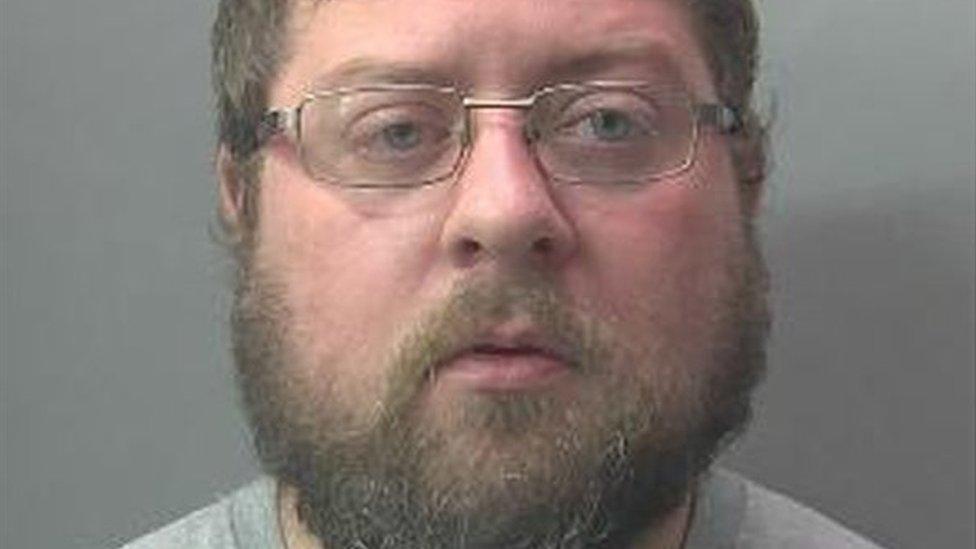
- Published17 April 2023
